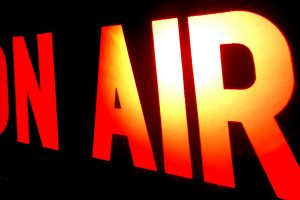Radio Conglomerates…hand outs?
Rolling Stone
Restaurant Chains Took Loans Meant for Small Businesses. Will Radio Conglomerates Do the Same?
Watchdog groups fear that language in a new stimulus bill could allow individual stations owned by large companies to “masquerade” as small businesses — and take all the money
The National Association of Broadcasters, a lobbying group that represents modest radio groups as well as the massive chains — including iHeartMedia (around 850 stations), Townsquare Media (around 320 stations), and Entercom (more than 235 stations) — cheered the Heroes Act. “Hometown broadcasters and community newspapers are providing vital news and information during these unprecedented times to keep families and communities safe, while struggling with record advertising revenue losses,” the NAB wrote in a statement on Tuesday. “Broadcasters look forward to working with all Members of Congress to ensure that such legislative language is swiftly enacted.”
But other organizations said the bill’s language undercuts its original intent: to help small businesses. On Tuesday, Craig Aaron, Co-CEO of the media advocacy group Free Press Action, expressed fear that, “as written, this legislation would benefit the biggest chains at the expense of their smaller competitors and other struggling businesses.”
The American Association of Independent Music, which counts more than 700 independent labels as members, also came out against the bill’s current language on Thursday. “It would be a travesty if these large radio conglomerates were able to get money out of the next tranche of PPP forgivable loans,” says Richard James Burgess, the head of A2IM. The big radio companies “are masquerading as small businesses, but they’re gigantic conglomerates.”
Radio conglomerates claim they need these loans to maintain a local presence. But others argue that these conglomerates have never been less interested in being local than they are now. “These are companies that have gone and gutted their payrolls, dumped local talent, and replaced them with robot DJs,” Aaron says. “We’ve gotten so far from local owners that radio is almost unrecognizable now,” Karen Slade, vice president and general manager of the independently owned KJLH in Los Angeles, told Rolling Stone last year.
To recap: The NAB is asking Congress to give radio conglomerates money, supposedly to support their local programming. At the same time, it’s pushing the FCC to jettison ownership rules, which, many worry, will cement radio’s decades-long turn away from local programming.
That’s why small radio chains should absolutely benefit from the latest edition of the PPP. But they — and other mom-and-pop businesses — may be unable to benefit at all if conglomerates end up with all the money.

Leave a Reply